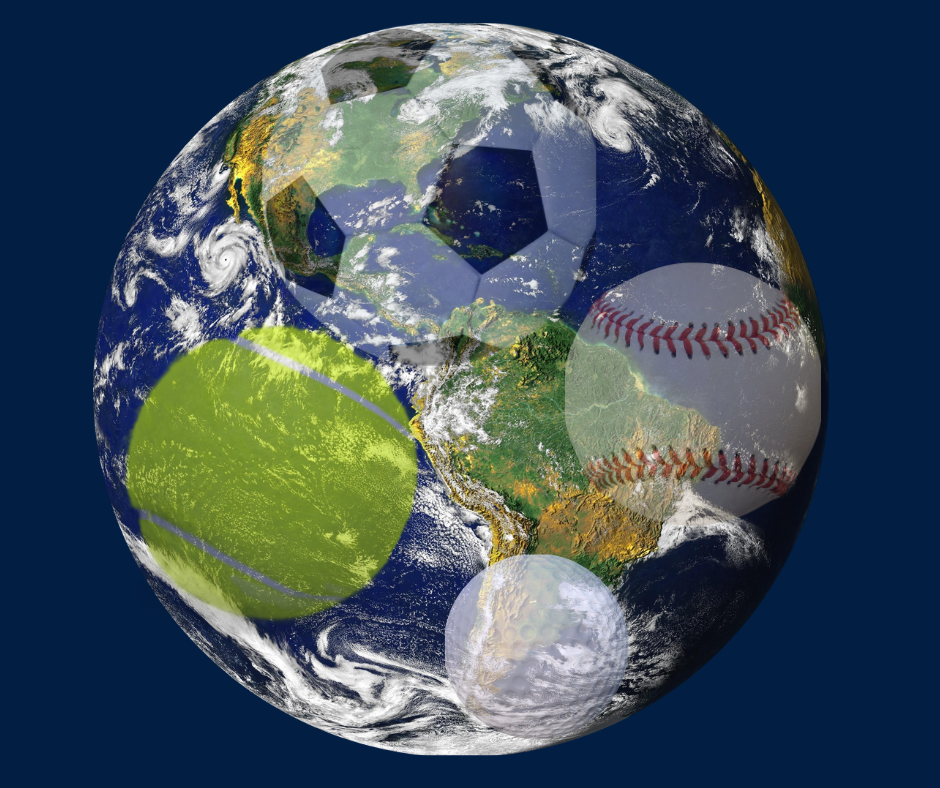Every Day Should Be Earth Day For Athletes
Every Day Should Be Earth Day For Athletes. The practice field may not seem like the typical place to discuss environmental issues, but since many sports take place outdoors and in nature, it might be the ideal spot to begin educating young people about this topic.
How Sports Affect the Environment
Playing sports can contribute to our ever-increasing pollution levels, from the use of plastic water bottles to large amounts of energy for lighting and power systems, to carbon emissions from driving all the driving to games and practices, but there are things your team and your athletes can do to make a positive difference.
Start teaching sustainable practices early on so you can plant a seed that can stay with them forever. The environment is our legacy to future generations, and protecting it should be a priority now more than ever.
Here are five ways athletes, their teams, and their families can make a difference.
1) Rethink Transportation
Transportation is one of the biggest environmental impacts of youth sports. Parents drive thousands of additional miles each year due to their kid’s youth sports schedules. This generates a lot of carbon emissions in the process. To reduce the carbon footprint, parents should consider alternatives like carpooling, public transportation, or even biking or walking to games and practices. According to a study by the American Public Transportation Association, carpoolers reduce their CO2 emissions by an average of 43%. That’s equal to taking between one and three cars off the road! Carpooling also reduces congestion on roads, which further reduces air pollution.
2) Reduce Waste
Single-use plastics like water bottles and snack wrappers can add up quickly at youth sports events. Encouraging kids to bring refillable water bottles and snacks in reusable containers can help reduce waste. Additionally, look for ways to reduce waste at practice facilities, tournaments, and events, such as recycling bins and composting programs. Doing this can have a huge positive impact on the environment. According to the Environmental Protection Agency (EPA), paper recycling alone reduced greenhouse gas emissions by more than 180 million metric tons in 2019, which is equivalent to taking 39 million cars off the road for a year. Additionally, composting food scraps can help reduce the amount of methane produced by landfills and other forms of waste disposal. By reducing the amount of waste sent to landfills, recycling and composting also conserve valuable resources like water, energy, and virgin materials. Therefore, no matter how small, each contribution to recycling and composting can make a big difference in preserving
3) Choose Eco-Friendly Equipment
Sports equipment can be a significant source of waste and pollution, particularly if it’s made from synthetic materials that don’t biodegrade. Choosing equipment made from sustainable or recycled materials can help reduce the environmental impact of youth sports. There are actually entire brands of sporting equipment that are vegan and biodegradable. They may not be game official, but they could work for practicing at home. Every little change can help. Additionally, consider donating old equipment instead of throwing it away or purchasing used equipment from secondhand stores or online.
4) Protect Local Eco-systems
Our kids can play an important role in protecting local ecosystems. They can learn to recognize and respect the habitats of native wildlife, be mindful of the impacts their activities have on natural areas, and spread awareness about ways to protect the environment. Kids can participate in beach cleanups, launch recycling campaigns on their teams, volunteer for park maintenance projects, or join a local environmental organization. Even small actions, like picking up litter or planting trees, can make a difference in preserving our planet’s ecosystems. Teaching children to understand the importance of and take care of their local environment is an invaluable lesson that will last them a lifetime.
Here are 5 ways to put these ideas into practice starting today!
- Have the coach incorporate recycling and clean-up efforts after each practice and game.
- Encourage players to bring reusable water bottles to reduce plastic waste.
- Parents can pack and provide kids with energy-efficient snacks such as fruits and vegetables.
- Organize community service projects that involve cleaning up local parks or beaches.
- Have club or organization-wide carpool days
These activities not only promote environmental awareness but also teamwork and a sense of purpose. By implementing these simple ideas, you can empower your players to become eco-friendly ambassadors both on and off the field. It might also be a great volunteer opportunity for a young athlete to take on as the project leader for your team. Ultimately, it’s up to us, as adults, to inspire all those around us to pursue responsible action that nurtures sustainability for ourselves and for generations ahead.
